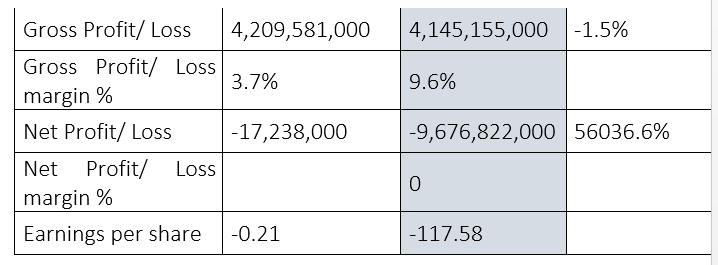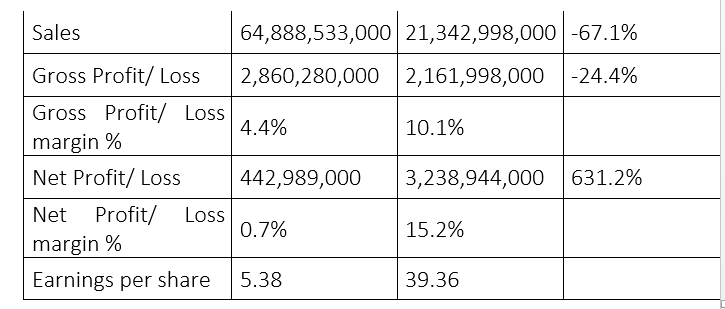INP-WealthPk
Ayesha Mudassar
Pak Suzuki Motor Company Limited (PSMC) suffered a mammoth decline of 56036.6% in net profit in the first half (January-June) of the ongoing calendar year 2023 as compared to the corresponding period of 2022 on account of a sharp contraction in demand and import restrictions, WealthPK reports. The company experienced lower sales volume of Completely Knocked Down (CKD) and Completely Built Units (CBU) due to import restrictions to stem dollar outflow. The plunge in demand due to economic hardships caused by spiralling inflation and currency devaluation contributed hugely to the depressed sales.
As per the company’s half-yearly report, PSMC reported a huge net loss of Rs9.6 billion during 1HCY23 as compared to a paltry net loss of Rs17 million over the same period last year. Net sales revenue declined from Rs112 billion in 1HCY22 to Rs43 billion in 1HCY23, posting a negative growth of 61.7%. The automobile assembler posted a loss per share of Rs118 for the six months ended June 30, 2023.


Gross profit margin in 1HCY23, however, improved to 9.6% from 3.7% in 1HCY22 as the cost of goods sold was reduced due to lower sales, though gross profit dipped marginally to Rs4.14 billion during the period under review from Rs4.21 billion previously.
Quarterly Review
In the second quarter (April-June) of 2023, PSMC sales decreased 67.1% compared to the corresponding period of last year. During this quarter, the company, however, posted a substantial increase in net profit, which jumped to Rs3.2 billion from Rs443 million in the same quarter of 2022, thus achieving a net profit ratio of 15.2%, which was way better than a tiny margin of 0.7% in 2QCY22.


Company Profile
Pak Suzuki Motor Company was incorporated in Pakistan as a public limited company in August 1983. The company is engaged in the assembling, progressive manufacturing and marketing of cars, pickups, vans, motorcycles and related spare parts.
Industry Overview
With the development of the domestic engineering base, the automobile sector provides import substitution for local consumption. The industry employs more than 500,000 people directly and indirectly and makes a sizable contribution to the national exchequer. Throughout the first half of 2023, the automotive industry had to face import compression measures, which were introduced to address the balance of payment crisis and to promote local production. However, these restrictions on the import of essential components created immense challenges for the manufacturing processes, which also led to disruption in the vendor supply chain, frequent plant shutdowns and underutilisation of the company’s plant capacity.
Currency devaluation, rising inflation and stringent fiscal measures have driven car prices out of reach for millions. Potential buyers are experiencing unprecedented late delivery times and non-availability of desired car variants due to disruption in supplies. Moreover, the increased tax burden further constrained the sector’s growth potential. The automobile sector expects an industry-friendly operating environment to overcome prevailing challenges.
Credit: INP-WealthPk













